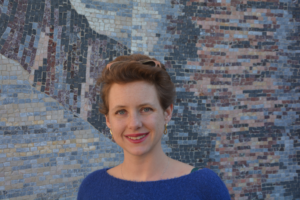My research project starts with a simple observation: we know that the Homeric epics were performed during festivals in the Archaic and Classical periods. These festivals were honoring one or several gods, while the epics narrate and stage these gods in action. What kind of relationship was established by the poet for the audience, between the gods celebrated within the festival and the gods sung in the epics?
In my PhD dissertation Des chants en partage. Épopées homériques et expériences du divin (to be published at the Éditions de la Sorbonne), I have shown that epics emphasize a specific relationship between men and gods, that is not characterized by distance and incommensurability but rather by shared experiences. Far from being the mere puppets of almighty gods, the men co-operate with the gods and share agency with them. Through this co-agency, human beings experience the divine presence, and gods themselves share and even suffer human experiences. The intricacy of human and divine agencies and interdependency do not only characterize the epic action. On the level of the poetic performance itself, a similar pattern is sketched. As they collaborate in various heroic actions, men and gods also do so for the efficacy of the performance. Such a link between men and gods requires and at the same time makes possible that the audience is constituted as a community. Through the singer’s song, reciprocity, kharis, binds the men together with each other and with the gods.
The project that I am currently conducting at the Center for Hellenic Studies pursues a further exploration of the religious dimension of the epic performances. I propose to consider the speech-act of the Homeric epics not only as poetic performance, but also as a ritual one. As such, the Iliad and the Odyssey were crucial events in the ongoing experiment of Greek polytheism. In which conditions such an experiment was made possible precisely in the context of the festivals? First, the practical organization of the festival and within it, of the epic performance, has to be described, with the help of epigraphical and iconographic evidences. My goal is to analyze the specific setting that was likely to permit the circulation of kharis and cooperation between men and gods, to create a successful performance. One element of this success consists in the construction of the social community by the means of renewing a bond with the gods.
In this perspective, I will also focus on the events that followed the epic performance, and in particular, the sacrifice. While it can arguably be defined as the climax of the festival, the sacrifice was also thought as a way of binding men and gods together. I intend to shed light on the common feature between sacrifice and epic songs in Greek thought.
Finally, my project integrates a comparative perspective. In the long run, and through a collaborative work, the aim is to constitute a panorama of the performance of epic songs in different societies in order to bring out the distinctive features of such a genre, envisaged both as a text and as a social event. Within such a frame, it will be possible to define in which conditions we can argue for a ritual setting of the epic performances.
As a first step, my stay at the CHS will give me the occasion to visit Harvard University in order to work on The Milman Parry Collection of Oral Literature. I aim at determining if the South Slavic songs registered by Parry and Lord could have a ritual dimension, notably when they were performed during the Ramadan period. By focusing on the opening lines of the songs, I will also analyze the poetic devices used by the poet in order to set the scene for the audience.
Manon Brouillet
 Manon Brouillet studied classics in Paris, at the École Normale Supérieure (2007-2012). In 2016, she received her PhD from the École des Hautes Études en Sciences sociales (EHESS). She wrote a dissertation entitled Des chants en partage. L’épopée homérique comme expérience religieuse. Her research on the Homeric epics combines historical and philological reading with anthropological questioning. Ethnological fieldwork in Burkina Faso with traditional singers led her to propose a new insight on the relationship between singer, audience, and the gods. She takes the Iliad and the Odyssey as crucial events in the ongoing experiment of Greek polytheism. Her research project during her stay at the CHS will focus on the conditions of the performance of the Homeric epics in Archaic and Classical periods, especially during panhellenic festivals.
Manon Brouillet studied classics in Paris, at the École Normale Supérieure (2007-2012). In 2016, she received her PhD from the École des Hautes Études en Sciences sociales (EHESS). She wrote a dissertation entitled Des chants en partage. L’épopée homérique comme expérience religieuse. Her research on the Homeric epics combines historical and philological reading with anthropological questioning. Ethnological fieldwork in Burkina Faso with traditional singers led her to propose a new insight on the relationship between singer, audience, and the gods. She takes the Iliad and the Odyssey as crucial events in the ongoing experiment of Greek polytheism. Her research project during her stay at the CHS will focus on the conditions of the performance of the Homeric epics in Archaic and Classical periods, especially during panhellenic festivals.
